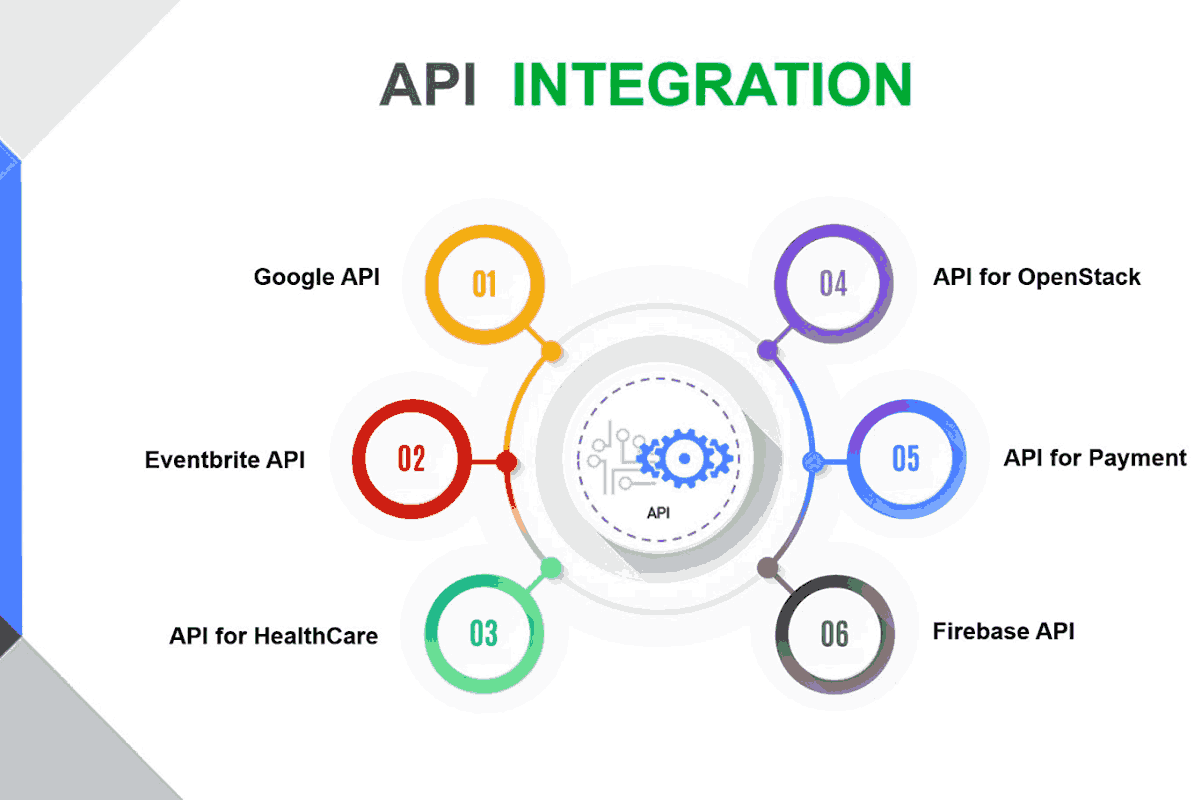
Domain and hosting are two of the most important decisions you’ll have to make as an entrepreneur, especially if you’re trying to start your own business from scratch. A domain name might sound like a pretty simple concept, but it’s actually one of the most vital choices you’ll make as an entrepreneur, and picking the wrong one can do more harm than good. Here are 9 things you need to know about domain names and hosting before you settle on your final decision.
1) What is a domain name?
A domain name is a unique and easily recognizable name used to identify a website or web page. It is part of the URL (Uniform Resource Locator) and allows visitors to access the website. A domain name typically consists of two main parts: the website’s name and an extension, such as .com, .net, .org, or .info. It is a valuable asset for any website, allowing it to become recognizable on the Internet.
When selecting a domain name for your website, it is important to choose a name that is memorable, unique, and relevant to the content of your website. It should also be easy to type so that customers can easily find your site. Additionally, consider registering several versions of your domain name with different extensions, as this will help protect your brand from cybersquatters.
Once you have chosen the perfect domain name for your website, you need to register it with a registrar. Domain registration is a simple process and typically involves paying an annual fee. After the domain has been registered, it needs to be connected with a hosting provider so that it can be linked to a web server. This allows the website to be accessed by Internet users around the world.
Choosing the right domain name and hosting provider is an important part of creating a successful website.
2) What is hosting?
Hosting is a critical part of any website’s infrastructure and is a crucial step in the website creation process. Simply put, hosting is a service that allows your website to be accessed over the internet, allowing you to showcase and share your content with the world. To get your website up and running, you’ll need a domain name, web hosting, and a website builder.
So what exactly is hosting? Here are 10 things you need to know about hosting for your website:
1. Hosting is required to access your website online. Without hosting, no one would be able to access your website from the internet.
2. When you purchase hosting services, you’re essentially renting space on a server that your website will be hosted on. This is also known as web hosting or server hosting.
3. Web hosting services offer different plans for different types of websites – from ecommerce sites to blogs.
4. When selecting a hosting service, it’s important to consider factors such as uptime, speed, customer support, scalability, security, and cost.
5. Hosting can be shared (many websites on one server) or dedicated (one website per server).
6. Some hosting services offer features such as free SSL certificates and backups, while others require additional payments for those services.
7. Some hosting providers offer managed hosting services, which include additional services such as website maintenance, optimization, and security monitoring.
8. If you plan on using your own domain name with your hosting provider, you’ll need to purchase the domain name separately.
9. Different hosting providers offer different control panels that allow you to manage your hosting account and related settings.
10. When selecting a hosting provider, make sure that it meets all your needs, is reliable, and offers good customer support.
3) importance of both a domain and hosting?
Having a domain and hosting is essential for any business, website or blog. It allows you to have a unique online presence and access to all the services that the internet has to offer. To help you understand the importance of having both a domain and hosting, here are 10 things you need to know:
1. A domain name is your website's address. It's how people will find and visit your website.
2. Domain names are registered through domain registrars, who are responsible for verifying that the domain name has not already been taken by someone else.
3. Hosting is like renting space on a server. This is where all of your website files are stored so that they can be accessed online.
4. Different types of hosting are available, including shared, VPS and dedicated hosting. It is important to choose the right type of hosting to ensure your website runs smoothly and quickly.
5. Many hosting companies also provide domain registration services, which makes it easier to manage both your domain and hosting in one place.
6. Your domain name should be easy to remember and easy to spell. It should also represent your business or website in a positive way.
7. When registering a domain name, it is important to be aware of the various extensions available (such as .com, .net, .org etc.) and to choose one that is relevant to your business or website.
8. Securing your domain name is important to prevent other people from using it without your permission. Make sure you have an appropriate Whois privacy policy in place to protect your personal information.
9. Hosting packages usually include a certain amount of disk space, bandwidth and email accounts. Depending on the size of your website or business, you may need more than the basic package provides.
10. Having a domain name and hosting is only part of creating a successful website or blog; you also need to consider factors such as design, content and marketing strategies.
4) How do I choose a domain name?
Now Choosing the best and the right domain name can be a difficult task. There are many factors to consider, such as brand-ability, availability, search engine optimization, and more. Here are 10 tips to help you choose the perfect domain name:
1. Brainstorm your ideas. Start by writing down any keywords that are associated with your website, services, or products. This will help you come up with ideas for possible domain names.
2. Choose a memorable name. Your domain name should be easy to remember and catchy. Think of something unique that stands out from the crowd and that people will recognize.
3. Make sure it’s available. Before you can register your domain name, you need to make sure it is available. You can check this using a domain name availability tool such as WHOIS.
4. Keep it short and sweet. Try to keep your domain name as short as possible – ideally under 15 characters. The shorter the better!
5. Use relevant keywords. If you want to get better visibility in search engine results pages (SERPs), make sure you include relevant keywords in your domain name. For example, if you own a business selling home appliances, try to include words like home or appliances in your domain name.
6. Avoid hyphens and numbers. If possible, avoid hyphens and numbers in your domain name as they make it harder to remember and look unprofessional.
7. Consider different extensions. There are various different domain name extensions available, such as .com, .org, .net and more. Try to choose one that reflects the purpose of your website and is most likely to be used by your target audience.
8. Protect your brand identity. If you own a trademarked brand name, consider registering domain names with variations of that brand name in order to protect your online identity and stop others from using it.
9. Invest in an SSL Certificate. If you plan on collecting payments or exchanging sensitive data over your website, make sure you invest in an SSL Certificate so visitors feel secure using your website.
10. Use a reliable hosting provider. A reliable web hosting provider will ensure your website is always up and running and easily accessible to visitors. Make sure to do your research and find a hosting provider that suits your needs and budget before you purchase your domain name.
5) How do I choose a hosting provider?
Choosing the right hosting provider for your website can be a daunting task. With so many options available, it’s difficult to know which is the best fit for your needs. To make the process easier, here are 10 important things to consider when selecting a hosting provider: 1) Do I have my own domain name?: If you already have your own domain name, then that means that there will be no additional cost to host it on a particular server or with a certain company. But if you don't yet have your own domain, then choose wisely because some providers offer free domains with hosting accounts while others charge an extra fee every year. 2) What kind of server do they offer?: Generally speaking, shared hosting and VPS (virtual private servers) tend to cost less than dedicated servers but may not provide enough power or storage space for larger websites. Shared hosts typically allow individual webpages on the same server while VPS providers usually allocate separate resources like CPU usage and RAM allocation per customer account. Dedicated hosts offer even more power and flexibility by giving customers access to all of their resources at any time without having other websites interfering with theirs in any way.
6) Right about the different types of hosting?
When it comes to the online world, one of the most important decisions you can make is choosing the right domain and hosting for your website. Domain and hosting are two very different aspects of running a website, yet they are often talked about interchangeably. It’s important to understand the difference between the two to ensure your site is functioning correctly and getting the today best out of its hosting.
To get you started, here are 10 key things you need to know about domains and hosting:
1. Domains are the web address of your website. They can either be purchased from a registrar or a web hosting provider.
2. Hosting refers to the server where your website is stored and accessed by visitors. This can either be shared or dedicated hosting.
3. When choosing a domain, consider keywords that people may use when searching for your business or site. You may want to use a catchy name too.
4. In most cases, web hosting is bundled together with a domain when you buy it. However, you don’t necessarily have to purchase them together.
5. Shared hosting is a cost-effective option if your site has low traffic volumes and isn’t expected to increase drastically over time.
6. Dedicated hosting is usually more expensive but is great if you have large sites or expect large amounts of traffic on your site.
7. Look for hosting packages that offer good uptime and reliable customer service if you’re expecting a lot of traffic on your site.
8. Consider the type of technology used by the hosting provider and ensure it will meet your needs as your site grows in size and complexity.
9. Make sure to register any domain names you own so that no one else can use them.
10. Check reviews of hosting providers before making a final decision. This will help you identify whether they are reliable or not.
By understanding the difference between domain and hosting, you’ll be able to select the right solution for your website and maximize its potential. With the right combination of domain and hosting, your website will be running smoothly in no time!
7) What are the top level domain names?
When it comes to domains and hosting, there are many different types of domain names available. There is a list of domain is the top-level domain (TLD). TLDs are the highest level of domain, and are typically used by websites, companies, and organizations. The following is a list of the most common TLDs:
1. .com – The most popular TLD. This is the default choice for most businesses, but can also be used for personal websites.
2. .net – A generic top-level domain primarily used for networking related websites or services.
3. .org – A generic TLD primarily used for non-profit organizations and educational institutions.
4. .gov – A special TLD restricted to US government agencies and departments.
5. .edu – A special TLD restricted to US educational institutions.
6. .info – A generic TLD for informational websites or resources.
7. .biz – A generic TLD primarily used for business websites.
8. .uk – A special TLD used in the United Kingdom and its Crown dependencies.
9. .ca – A special TLD used in Canada.
10. .name – A generic TLD used for personal websites and blogs.
These are the most common top-level domain names, though there are many more available as well. Whether you're creating a website for a business or organization, or just need a domain for a personal website or blog, any of these options should suit your needs.
8) How much does domain and hosting cost?
If you are looking to start a website, one of the most important steps is to purchase a domain and hosting. Many people may be curious about how much domain and hosting cost, so this blog post section will cover that topic.
Domain and hosting costs can vary depending on your needs. For those starting out with a small website, the costs of domain and hosting are usually minimal, with some companies offering basic packages for free. However, as your website grows, more advanced packages with more features may be necessary, which will result in higher costs.
For basic packages, expect to pay around $5-15/month for domain and hosting. This will provide you with the essentials to get your website up and running. But if you need more advanced features like faster loading speeds, greater customization options, or more bandwidth allowance, then you may have to pay more.
Before deciding which domain and hosting package to go for, it's important to take some time to consider what your website needs. If you're just starting out, it may not be necessary to invest in an expensive package right away. However, if you want to make sure your website runs smoothly, it's worth investing in a reliable package that meets all your needs.
To conclude, domain and hosting costs vary depending on what type of package you require. If you’re just getting started with a website, there are plenty of affordable options available. But if you’re expecting large amounts of traffic or want greater customization options, it's worth investing in an advanced package that meets your needs.
9) How do I set up my domain and hosting?
Setting up a domain and hosting for your website is one of the most important steps when launching an online business. Whether you are creating a personal blog or launching a professional e-commerce store, you need to understand how domain and hosting work. To help you out, here are 10 things to know about domain and hosting:
1. A domain name is your web address. It's how people find your website online. The most common domain names are .com, .net, and .org.
2. A hosting provider is responsible for storing all of your website files, images, and content. There are many different hosting providers available, such as Bluehost, GoDaddy, HostGator, and SiteGround.
3. Domain names can be purchased directly from a hosting provider, or through a third-party registrar like Namecheap or Google Domains.
4. Hosting plans vary in price based on the type of service you require and the amount of storage space you need. Shared hosting plans tend to be more affordable, while dedicated server plans can be more expensive.
5. Domains need to be renewed annually in order to remain active. You will typically receive an email reminder when it’s time to renew your domain name.
6. It’s important to make sure that your hosting provider offers the type of technology you need to run your website. This includes support for databases, scripting languages, and other software tools.
7. You may also need to configure a Content Management System (CMS) like WordPress or Joomla for your website. Most hosting providers offer one-click installation of these types of software packages.
8. Once your domain and hosting are set up, you can connect your domain to a web server and configure email addresses associated with your domain name.
9. You should also ensure that your website is secure with an SSL certificate. This is essential if you plan to accept payments online or use the site to collect sensitive data from customers.
10. Finally, make sure you back up your website regularly so that you can restore it in case of any disasters or errors. Many hosting providers provide automatic backups as part of their service.
Setting up domain and hosting may seem daunting at first, but following these steps will help you get started on the right foot. For more information about setting up domain and hosting for your website, contact a knowledgeable expert today!
At the end of the day, finding a reliable domain and hosting service provider is key to ensure your website remains safe, secure, and running smoothly. Keep these tips in mind when searching for a suitable provider and enjoy the benefits of having a top-notch domain and hosting solution.
Keywords:
- Domain and Hosting
- Domain
- Hosting
- hosting provider
- different types of hosting
- top level domain names
- domain and hosting cost











Leave a comment